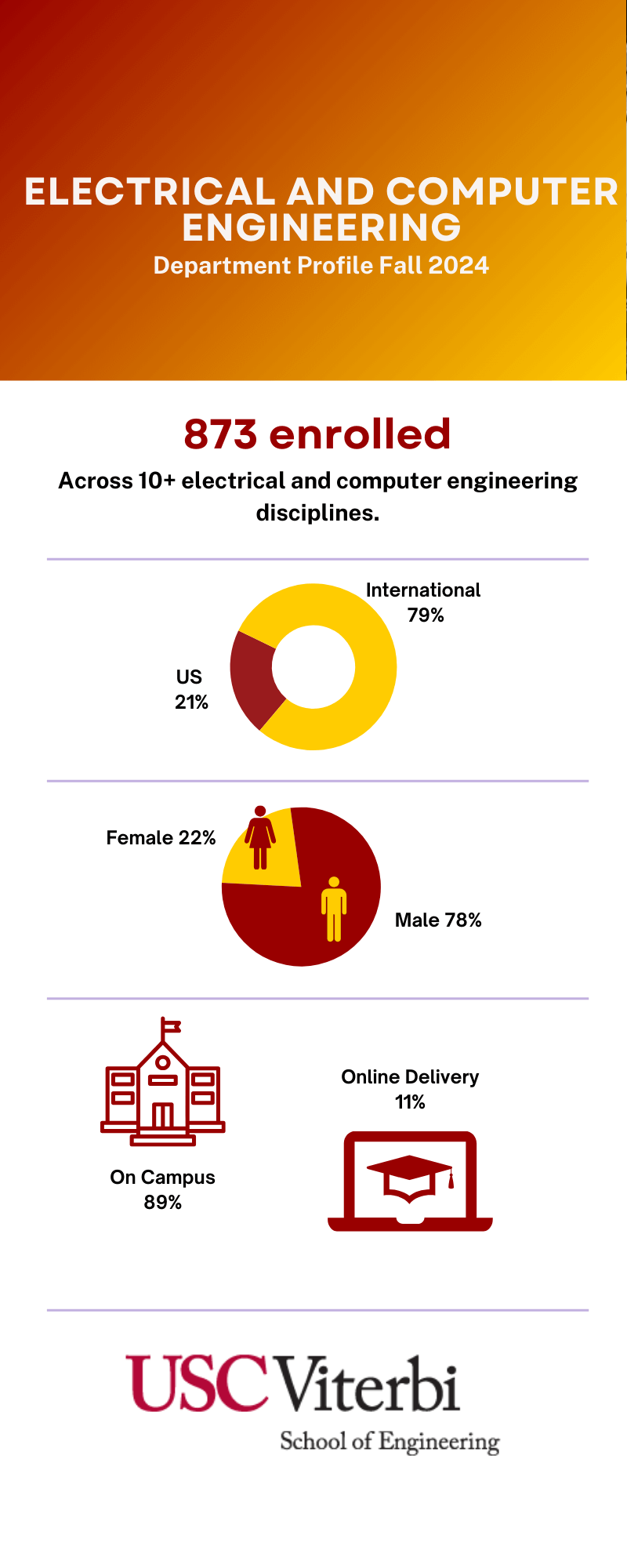Master of Science in Electrical & Computer Engineering - Hardware Systems for Machine Learning
Application Deadlines
FALL:
Scholarship Consideration Deadline: December 15
Final Deadline: January 15
- Program Overview
- Application Criteria
- Tuition & Fees
- Career Outcomes
- DEN@Viterbi - Online Delivery
- Request Information
Machine Learning (ML) plays an increasingly crucial role in our society’s existence: from autonomous driving, health care, data center management, to machine translation; and industry has put billions of investment dollars into creating even more new market segments. These investments span from software development, algorithm development, to systems and hardware design.
However, these investments will fall short of their goals if there is not a corresponding workforce available. Efforts by NSF, DARPA, DoE, etc., have been successful in creating new academic programs, particularly in the area of machine learning software development and algorithm design. However, the future success of ML depends equally on the ability of future engineers to design systems and hardware that can scale along with the exponential growth in the market. Currently, ML model training approaches use vast amounts of energy and computational resources, which have a detrimental effect on our planet. Hence, there is an urgent need for those focused on hardware systems for ML. This program is designed to be a key enabler to build a future workforce that is firmly grounded in the hardware system demands of ML.
In this program, students will learn the following:
- The algebraic foundations of ML
- The hardware demands of a wide range of ML models, ranging from convolutional neural networks, recommendation systems, natural language processing models, to graph convolutional networks, and so on
- Tools and techniques to conduct performance and energy bottleneck analysis of
ML algorithms on a variety of computing platforms, ranging from massively parallel GPUs to edge devices - How to map algebraic computations to hardware accelerator blocks and use
hands-on labs to build and test accelerators for ML - How to scale ML systems in the cloud to meet increasing demands on a model
Students graduating from this program will be equipped to understand hardware scalability, energy usage, performance analysis of ML algorithms, and then use this knowledge to design new hardware accelerators, improve the efficiency of existing computing platforms such as GPUs and multicore CPUs.
International Students: This program is eligible for the OPT STEM extension.
- This program requires completion of 32 units of coursework
- Thesis option and Directed Research (research without thesis) may be requested after completing first semester. Thesis option is not guaranteed
- USC Catalogue
- USC Schedule of Classes

Spotlight Webinar

